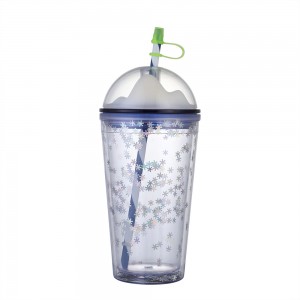Plastic water cups have always been a common disposable item in people’s lives. However, due to the serious impact of plastic pollution on the environment and health, the European Union has taken a series of measures to restrict the sale of plastic water cups. These measures aim to reduce the generation of single-use plastic waste, protect the environment and promote sustainable development.
First, the European Union passed a Single-Use Plastics Directive in 2019. According to the directive, the EU will ban the sale of some common items in single-use plastic products, including plastic cups, straws, tableware and cotton buds. This means that merchants can no longer supply or sell these prohibited items, and the state needs to take steps to ensure the directive is enforced.
In addition, the EU also encourages member states to adopt other restrictive measures, such as the imposition of plastic bag taxes and the establishment of plastic bottle recycling systems. These initiatives aim to raise awareness about plastic waste and make them more environmentally conscious. By increasing the cost of plastic products and providing viable alternatives, the EU hopes consumers will switch to more sustainable options, such as using reusable drinking glasses or paper cups.
These sales restrictions have a significant impact on the environment. Single-use plastic products are often used in a mass-produced and quickly discarded manner, resulting in large amounts of plastic waste entering the natural environment and causing harm to wildlife and ecosystems. By restricting the sale of items such as plastic water cups, the EU hopes to reduce the generation of plastic waste and promote more sustainable resource use and a circular economy.
However, these measures also face some challenges and controversies. First, some merchants and manufacturers may be unhappy with restricted sales because of the impact it may have on their business. Secondly, consumer habits and preferences also need to adapt to these changes. Many people are accustomed to using single-use plastics, and adopting sustainable alternatives can take time and education.
Nonetheless, it is worth noting that the EU’s move to restrict the sale of plastic water cups is for the sake of long-term sustainable development and environmental protection. It reminds people to rethink consumption habits, while promoting innovation and market competition to promote the development of more environmentally friendly products and solutions.
In summary, the EU has adopted measures to restrict the sale of disposable plastic products such as plastic water cups to reduce the negative impact of plastic waste on the environment. While these measures may come with some challenges, they can help drive a shift towards sustainable options and foster innovation and market change towards a greener future.
Post time: Dec-01-2023
